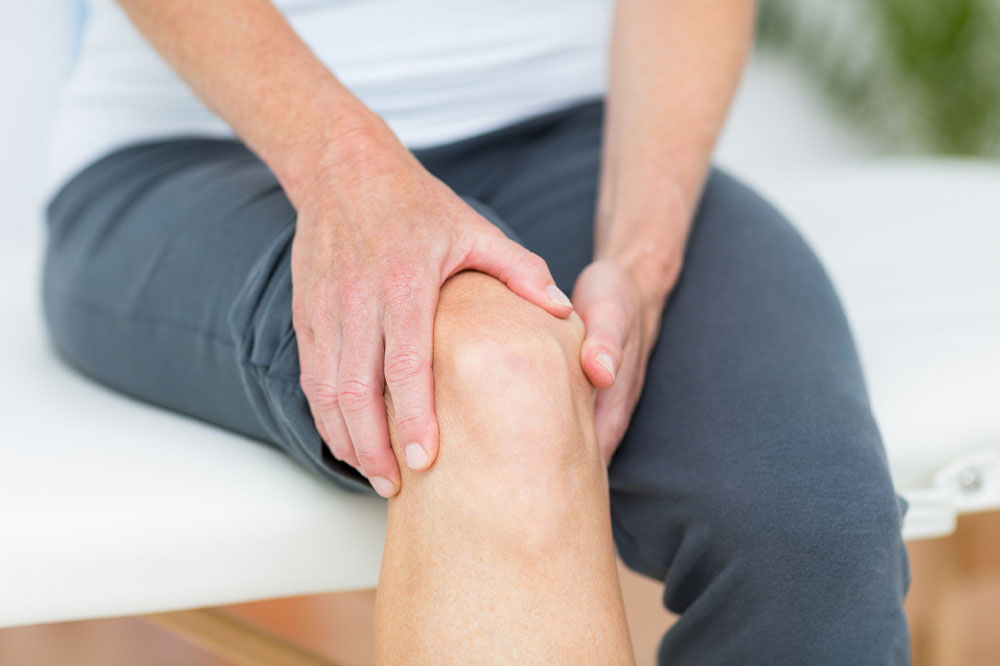Living with arthritis can be a deeply uncomfortable experience. This is due to its myriad list of symptoms. Although there is no permanent cure for arthritis, healthcare professionals can work on a treatment plan for people to reduce pain and inflammation and improve their quality of life. To achieve those objectives, such professionals need to detect the earliest signs and symptoms of the condition. Here are some of the most common early arthritis signs:
Morning stiffness
Most people feel stiff in the morning when they wake up. This tightness is caused due to the overnight changing of lubrication in the joints and fascia. Another cause for morning stiffness is that the body’s natural Ibuprofen has not kicked in yet. However, this stiffness tends to go away when one moves and stretches out a little. Morning exercises are a great way to release this morning stiffness. In the case of arthritis, this stiffness and tightness simply do not go away. This happens because of the inherently deep nature of arthritis symptoms. Therefore, if an individual experiences stiffness for 30 to 45 minutes after waking up, it may be a sign of arthritis and should be checked by a medical professional.
In fact, the stiffness does not occur only in the morning but also after one rests for a long time and then gets up from a comfortable position. This happens because the synovial fluid, a thick liquid found between one’s joints that reduces friction and joint damage, in one’s body becomes more gelatinous after a long period of inactivity. This is something that is caused by arthritis.
Fatigue
Arthritis has many subtypes, one of the most commonly found ones being rheumatoid arthritis, an autoimmune condition that causes widespread inflammation within the bones and joints in people. One of the common symptoms of this kind of arthritis is perpetual fatigue. Chronic tiredness is an easy way for doctors to diagnose arthritis in patients, especially if that is coupled with the other signs and symptoms associated with this health condition.
Fatigue is linked with systemic inflammation throughout the body, meaning that it is not restricted to just one or more joints. Commonly, joint pains accompany fatigue in the various stages of arthritis in people.
Joint pain
The pain in one’s body caused directly by arthritis is called arthralgia. Patients may have a perpetual throbbing sensation or a dull ache in the affected joints. People who are unaware of their arthritis are very likely to aggravate their pain through the overuse of their limbs and joints for various heavy physical activities. Arthritis-related pain may change with the external climate. For example, some individuals may experience a worsening of their joint pain in rainy weather.
In many cases, this joint pain is accompanied by the swelling of joints too. Swelling mainly occurs because of the increase of synovial fluid in the joints. In its gelatinous state, this fluid does more harm than good. Too much synovial fluid aggravates inflammation and, by extension, joint swelling. As a result, a person’s movements are greatly restricted when they develop arthritis initially.
Joint redness
As implied several times earlier, inflammation is the main problem caused directly by arthritis. Joint redness occurs when this inflammation spreads rapidly to various parts of the body in the initial and middle stages of arthritis. In these phases, healthcare professionals conduct certain tests to detect and diagnose arthritis in their patients. On top of that, healthcare experts can perform treatments to lower inflammation and redness in people.
Recurring pain in a previously injured joint
One of the lesser-known aspects of arthritis is its recurring, looping nature. Despite periods of symptom relief, this condition tends to resurface periodically.
Therefore, it is not unusual to experience arthritis in an ankle that was sprained a long time ago. This is because previous injuries often tend to resurface repeatedly. These traumas can weaken the bones and joints, making them more susceptible to experiencing arthritis symptoms again in the future. Therefore, to prevent one’s cartilage from getting destroyed due to recurring arthritis, one should visit a healthcare expert as soon as they feel pain sensations in a previously-affected joint.
Discomfort in the limbs
Rheumatoid arthritis and other kinds of arthritis develop in the smallest joints of the body and then work their way up to bigger ones. As a result, symptoms of arthritis often first appear in the fingers, toes, hands, and feet before affecting other joints. This is why many people experience stiffness in their knuckles and limbs in the morning. Although this may seem like a minor issue, it could be an early indication of arthritis that should not be disregarded.
Grating sound during movements
The synovial fluid gets badly damaged even in the earliest stages of arthritis in people. As a result, there are very little or no fluids in one’s joints and cartilage. This is a dangerous situation and leaves these elements (cartilage and joints) highly vulnerable to damage. One of the common precursors to this is a distinct grating sound in the joints. When one walks, runs, jumps, or sits down (or gets up from a seated position), they are likely to hear a grinding or grating sound and feel a stiff sensation due to developing arthritis in their bodies.
Restricted movements
Although this is one of the more eventual symptoms of the condition, it is still felt in the early stages. Due to the sheer pain caused by moving any limb or joint, people with early-stage arthritis are likely to prefer to stay seated or lie down in one position for hours on end. This essentially signals that their daily movements and activities have been severely restricted. Over time, their movements are likely to reduce even further up to the point in which they are permanently bedridden or simply unable to move their body even a few inches.



